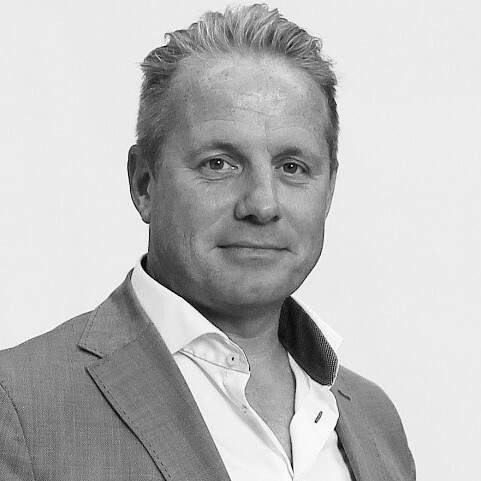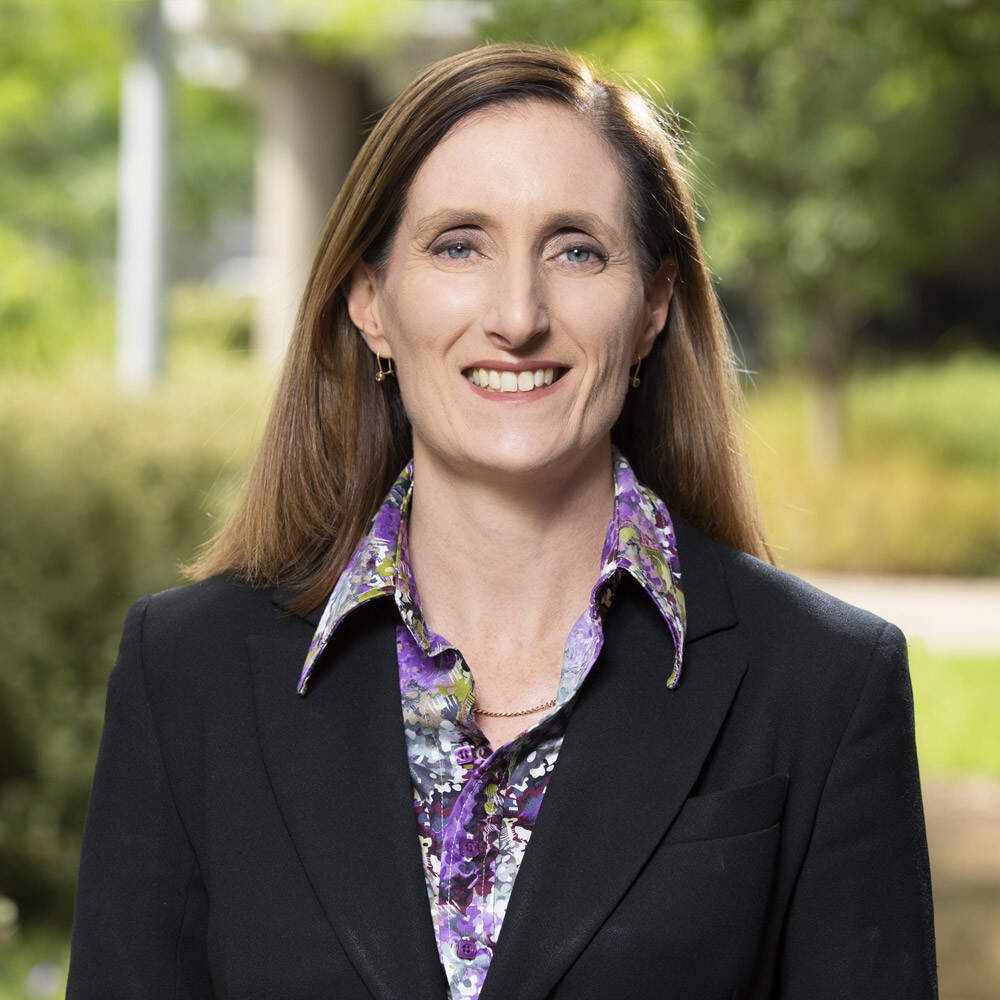14 October 2021
Conversations from the ITS World Congress 2021 #2

ITS Australia
The ITS World Congress 2021 is being held this week in Hamburg, Germany. In the second episode of our podcast series from the Congress, ITS Australia's Chief Executive Officer, Susan Harris chats with Martin Nielsen, the CTO at Felicity Smart Infrastructure.
Susan: Good morning. Good evening, everyone. I'm Susan Harris. I'm the Chief Executive at ITS Australia. We're here today at the ITS World Congress in Hamburg, as everyone's aware, few Australians are able to make the trip to Hamburg this year. But we've been able to bring together a number of our friends and partners who are in Hamburg to bring a sense of what's happening and share with us some of the atmosphere and some of the insights. So today, I got the pleasure of talking to Martin Nielsen, the CTO at Felicity SI, one of our great members. So Martin, thanks very much for joining us today. Can you give us a bit of an overview as to what you've seen so far in Hamburg? It’s early days at the Congress, but what have you seen so far that you'd like to share with us?
Martin: Hi, good morning everybody. And good morning, Susan. So, yes, the show has really just only started this morning, half an hour ago. What I can tell is that it looks pretty much like a normal ITS World Conference, it's, you know, I think that's about six halls. And all the show exhibitors, there are very large companies down to small start-up companies. And everybody is bringing out the big guns essentially. So it looks like it's, it's full-on again, the only difference is that everybody wears a mask, which I guess we have to get used to in this day and age.
Susan: Thanks, Martin. I think they’re looking for some big numbers there at the Congress. It sounds like the exhibition is huge, as always. So wish I could be there. But it sounds like the industry is really humming along and everyone's there trying to do business and share the latest information, which is fantastic.
Martin: Sure, I mean, you couldn't tell it that it's been a year of COVID. Except for the masks. That's what I can say.
Susan: Now, I guess that's something we just have to put up with for now. Felicity SI has some pretty clever technology. Martin, do you want to step us through some of the solutions that you're talking to people about at Hamburg and how that fits in with the Australian context as well?
Martin: We're really here to present and to talk to potential customers and partners in relationship to our technology and our products. We focus within the ITS space, we focus on visual AI, sensors, multimodal sensors that can detect traffic and collect data, which can then again be used in various mobility contexts, right from planning ahead, just with collecting sort of basic traffic data, but also being for improved traffic light controls. Eventually, if we look into the future as a data source input for ITS systems or for CCAM, which is the new terminology that we see here a lot. So we're down here presenting our sensors. We seem to have a good position in the market and we're very excited and hope to meet a lot of people here in the next couple of days.
Susan: Yeah, fantastic. I know that the last World Congress in Copenhagen, you were working with Cohda Wireless with some of your sensing technologies. Can you just give us a bit of a feel for what you did then?
Martin: We're very much in the roadside space. We also develop smart streetlights where we integrate some of these technologies as well. So at that time, we actually work with Cohda to buy an integration with our roadside unit for DSRC technology where we demonstrated how that technology could also be applied to something like control of streetlights. It is actually a very, very good source for controlling of streetlights, dimming levels, etc, etc. So, so that's what we did with Cohda there back in 2018. And that's, of course that's one way of collecting data is straight from the onboard units but we've also since then developed our own AI visual sensors so that we are able to collect very precise and accurate data regardless of whether cars have inbuilt electronics or not. So, because we are going to go through a phase, obviously, over the next many years where we will have a very big mixed environment of smart vehicles and smart transportation modes, but we will also have old cars and we will have pedestrians will have bicycles and so on. So we will have a number of different data sources into the whole ITS platform. And we represent some of that, I suppose.
Susan: Certainly what I'm seeing at the moment is that some of the trends in the clever city spaces that we want to use those sensors that can really up-spec the way we manage our traffic and it doesn't matter how clever your vehicle is, we can still have clever traffic and manage it that way. So I think that's considered Felicity SI fits really well into that niche.
Martin: All the big-ticket items, automated vehicles, self-driving vehicles, all these things that are really cool, will obviously happen at some point. But it's all built around data, right? So it is the first building stone of everything. If we want to have this bright future in terms of mobility where things are automatic self-driving, mixed in with all the other modes of traffic, the amount of data, the accuracy of data is the foundation for that pure and simple.
Susan: Yeah, fantastic. So look, I know you've just arrived at the Congress, Martin, it's really the first day. But if you had a chance to look around the exhibition at all, can you see any consistent themes?
Martin: There's a couple of themes that are set by the organisers here. And so we're quite happy to see that the, there's an overall theme, which is called intelligent infrastructure, which is the part of the industry that our company would fit into. So that's really nice to see that we have basically a theme for ourselves. Because otherwise, it can sometimes be a little bit difficult for people to navigate. So for us, it's really easy to steer, when we can say, okay, we're in, in the intelligent infrastructure space, right, of course, along with hundreds of other companies. Then, of course, you have the MaaS, or Mobility as a Service, which is always a large part of these shows and a very large topic as well. That always seems to transcend everything, because it's sort of the big and bright future that we're all striving towards. So that's clearly represented by all sorts of demonstrations of automated vehicles, both in the air and the sea and on the road. So you have the big guys like Volocopter, and things like that. I'm also surprised to see that Hamburg in itself seems to be this sort of an epicentre for German companies with larger visions. They seem to all be based around Hamburg, which I didn't know before I came here. So that's just an interesting observation. And then, of course, there's this, this, this new term that that, at least to me is a little bit new is this CCAM which is cooperative, connected, automated mobility. Which I guess is becoming a little bit of a trend word, you see it on a lot of the stands and has a lot of people talking about that acronym that everybody seems to like.
Susan: Yeah, trying to roll everything in together. So you know, we can't be just connected. We can't just be automated. We've got to be all of those things together. The bar keeps rising in the ITS space, we're never going to rest on our laurels. We're always going to roll more in and create a more complicated acronym. Well, it's great to see sort of those, you know, connected vehicles and automated vehicles still getting that good profile. And maybe you might get a ride in one of those Velocopters later.
Martin: Hamburg, it's not the worst place to be. And I look forward to seeing a lot more of it in the next couple of days.
Susan: Fantastic. All right. Well, thanks so much for joining us Martin. I really appreciate your insights and I wish you all the best for the rest of your time at the Congress. And I look forward to hearing from you with any further insights and hopefully seeing you over here in Australia one day to give us an update from Felicity SI’s perspective.
People in this Podcast

Martin Nielsen
Chief Technology officer / Felicity Smart Infrastructure
Martin is a senior executive and entrepreneur with a passion for technology-based business models. With extensive global experience, Martin enjoys working across diverse cultures.
Martin has extensive experience within numerous responsibilities, roles and disciplines ranging from P&L management, sales management, business and market development, product development and building high-performance teams - all with the aim of accelerating growth within such sectors as telecommunications, LED Lighting, Smart City, IoT Infrastructure as well as enterprise software.


Susan Harris
Chief Executive Officer / ITS Australia
As Chief Executive of ITS Australia, and with an extensive career in transport strategy, Susan is ideally placed at the intersection of technology and transport. Supported by strong connections to the international ITS community and the global network of ITS Associations, Susan works tirelessly advocating for the benefits of transport technologies for business and for the broader Australian community.
Susan is highly regarded for her roles supporting the growth and innovation of the nation’s transport technology industries. She works across a number of industry advisory groups and is a regular advisor to the State and Federal Governments, and their Ministers, on transport technology and mobility issues.

